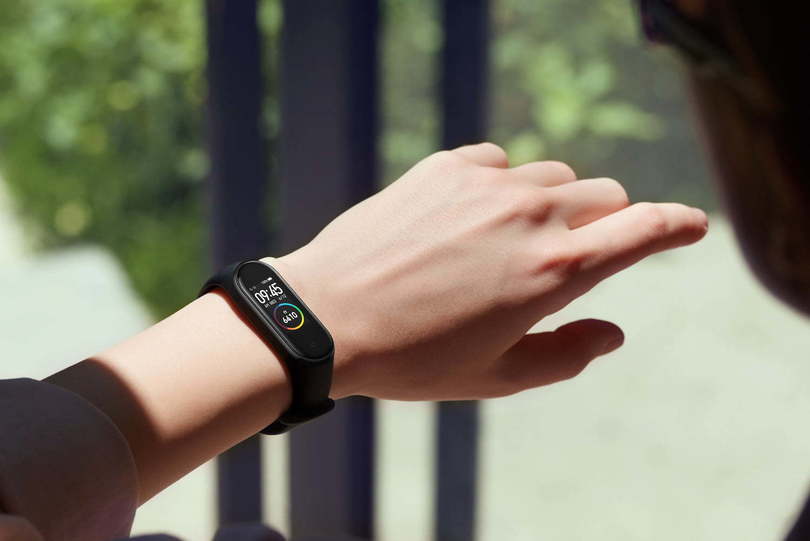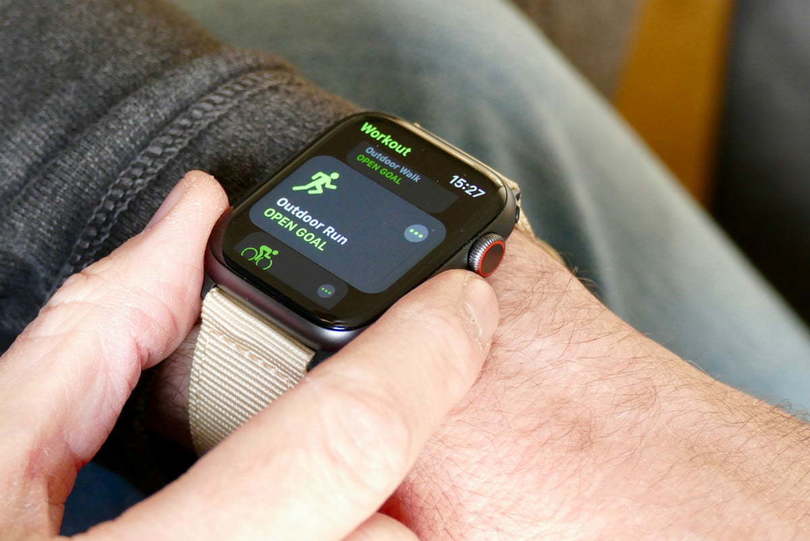[ad_1]
Keeping yourself in good physical shape is never easy. But the modern user has a little help for this. Fitness trackers and smartwatches remind a person to move, count steps, measure heart rate, calculate calories burned and, in general, help to monitor their physical activity in a familiar and understandable digital form.

But how accurate are these devices? Answer to this question Digital Trends given by Lisa Cadmus-Bertram, professor of kinesiology (the science of muscle movement) at the University of Wisconsin-Madison. “The short answer is different. Long — fitness trackers are accurate enough to be useful for most people in most tasks. But their accuracy depends on what exactly you are trying to measure.”says Professor Cadmus-Bertram.
Almost all fitness trackers count steps and distance traveled, many measure heart rate. Some models allow you to calculate the number of calories burned and monitor sleep. By the way, many smart watches also have such functions. Let’s take them in order.
Step counting
The simplest task for a fitness tracker is to count the user’s steps. There is a popular theory that for optimal physical fitness you need to walk 10 thousand steps a day. Users who try to follow this norm try to keep count with smart bracelets. Unfortunately, they do not always show the truth.

“Step counting is generally pretty accurate. But there are a couple of exceptions — people who move too slowly or have a non-standard gait may notice that their steps are not counted by the device”, says Professor Cadmus-Bertram. According to her, if you put on a couple of different fitness trackers and activate a pedometer on your smartphone, then all three devices will show different results. And the smartphone in your pants pocket will be the most accurate. This is because the devices on the user’s leg count the steps best.
“The hip is the best place to measure steps and most types of physical activity. A smartphone in your pants pocket needs to calculate your steps very accurately.”says Cadmus-Bertram.
Alas, despite the accuracy, a smartphone in a jeans pocket is not very suitable for sports — it simply gets in the way. A smart bracelet on the wrist will inevitably record unnecessary movements, but from the point of view of comfort of use, it is the best option. In addition, placing the gadget on the arm allows you to use other sensors in addition to the pedometer, such as a heart rate sensor. This gives a more complete picture, but there are nuances here.
Heart rate measurement
“Devices that measure heart rate can be quite accurate when it comes to resting measurements. But they show a very inconsistent result during physical activity.”says Cadmus-Bertram.
When you exercise, the tracker readings can deviate greatly from reality. On sweaty skin, the sensor may miss shocks, showing an inaccurate result. This also applies to smart watches — the more intense the physical activity, the less accurate the measurements. According to Professor Cadmus-Bertram, at any given moment, readings can deviate by 20 beats up or down. However, with sufficiently long measurements, the average result will be close to reality.
In general, the accuracy of a fitness tracker or smart watch depends on what the measurements are for. Even the latest Apple Watch with its new sensor cannot match the quality of measurements with a full-fledged electrocardiogram made on professional equipment. But still, the watch is able to catch signs of a potential problem and recommend the user to see a doctor.

In general, if you’re running a marathon and want to keep track of your heart rate, a fitness tracker won’t help you. In this case, it is better to use more professional heart rate belts attached to the chest.
Counting Calories Burned
When it comes to counting calories burned, the result is extremely difficult to evaluate. Typically, fitness trackers with this feature measure physical activity and combine this information with the user’s height, weight, gender, and age. Sometimes trackers offer the host to answer a few questions about their lifestyle. In any case, the result is very approximate.
“The problem is that the tracker can’t know certain things about your body. For example, it only assumes the ratio of fat to muscle in the body, although this parameter directly affects energy expenditure”explains Cadmus-Bertram.
Recent journal research Sports Medicine confirmed that all existing fitness trackers give very inaccurate results, especially when it comes to slow activity, like normal walking. However, they can still be used as a useful tool. According to Cadmus-Bertram, this requires the tracker to be calibrated.
For calibration, the professor recommends wearing the tracker for a month, and at the same time entering data on everything you eat into it. By knowing how many calories you’re consuming and how many you’re losing, you can correlate that information with changes in your body weight and calculate how wrong the tracker is. Knowing this error, in the future the device can be used for its intended purpose.
Also, do not forget about the simple psychological effect. When you see a visual result in the form of numbers, you begin to work on yourself a little more actively.
How to choose a fitness tracker?
First of all, you need to pay attention to compatibility with a smartphone. If you have an iPhone, it makes sense instead of a simple tracker to buy an Apple Watch that has all of these features. But with an Android smartphone, the choice becomes more diverse.
Even if you buy a cheap tracker, it is worth stopping at models with a heart rate sensor. This sensor may not be very accurate as a heart rate monitor, but its presence really affects the operation of the pedometer. As tests show, trackers that simultaneously analyze information from the accelerometer and heart rate sensor provide more accurate data on the user’s physical activity.
Professor Cadmus-Bertram does not recommend spending too much money on a tracker. “I would recommend sticking with the cheapest model that has a heart rate sensor. Of course, you can pay twice as much, but you will not get any significant additional features”she says.
[ad_2]

Добавить комментарий
Для отправки комментария вам необходимо авторизоваться.